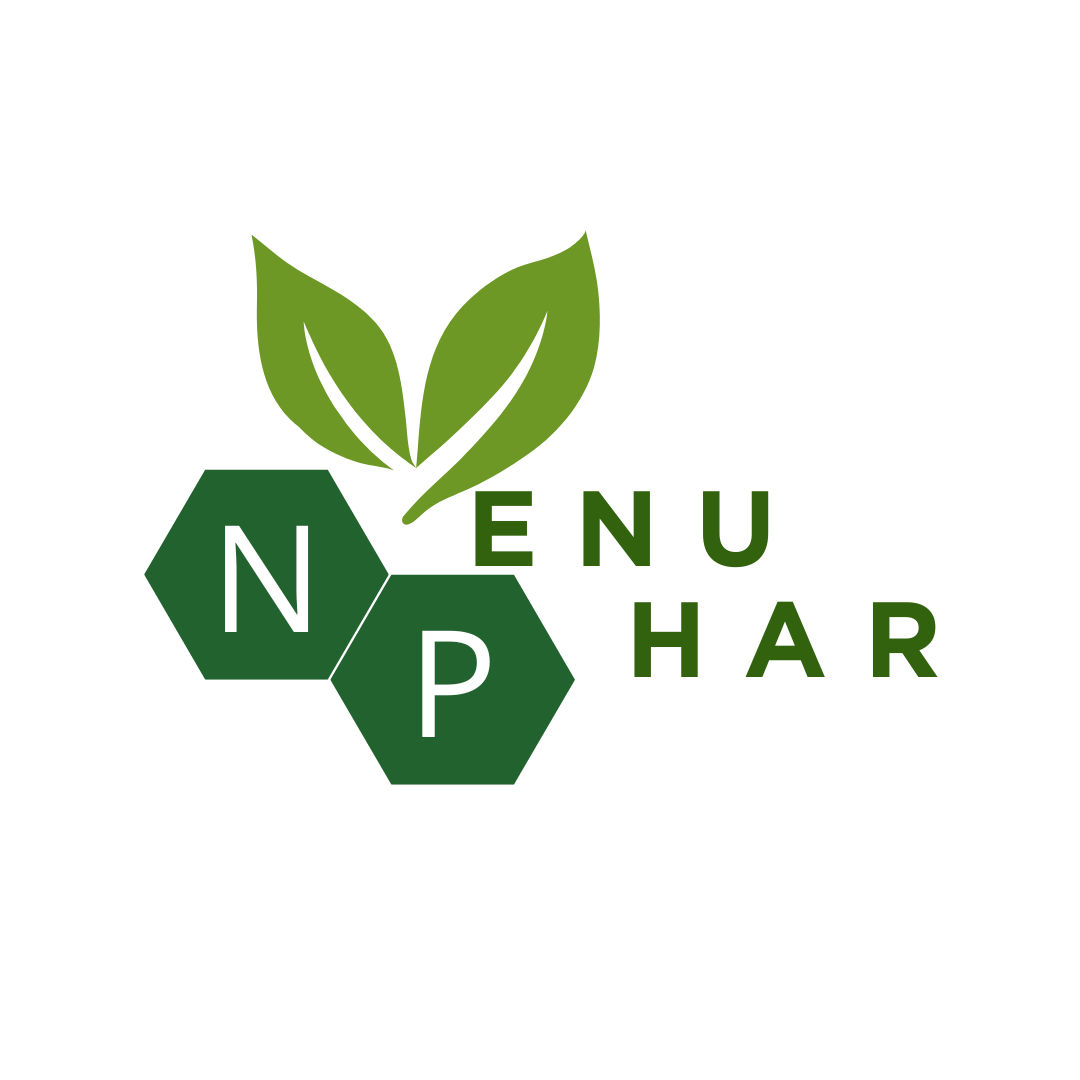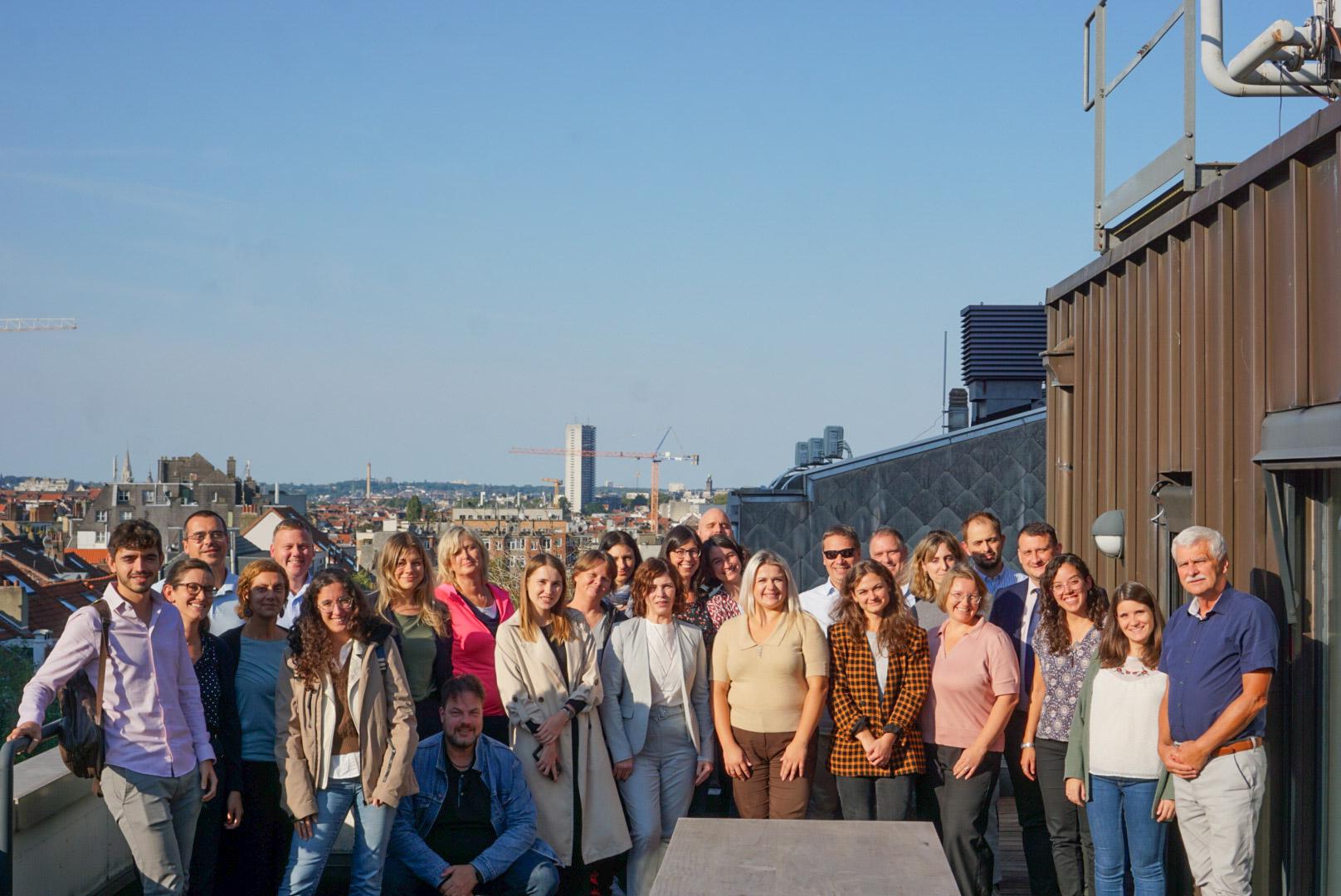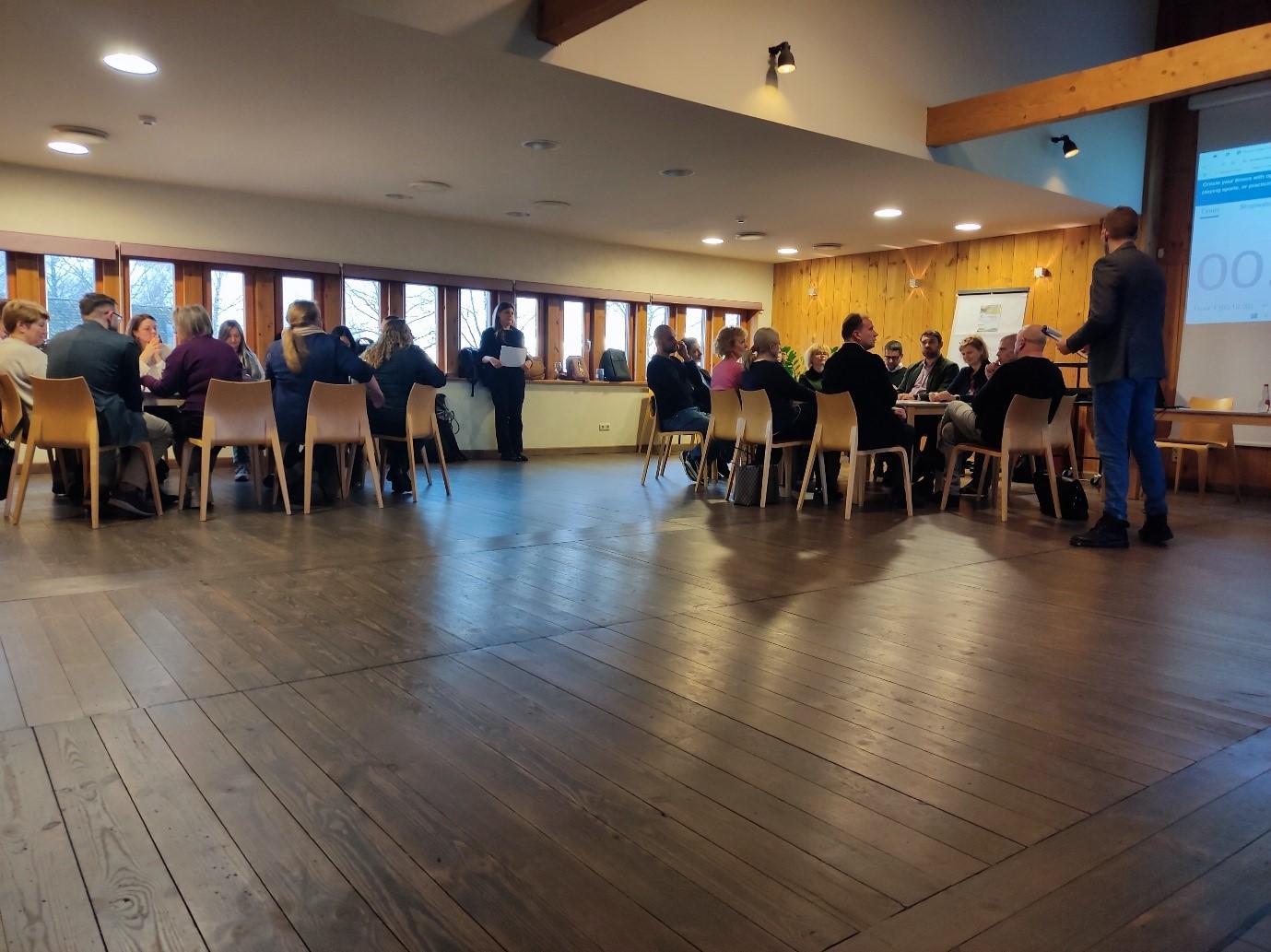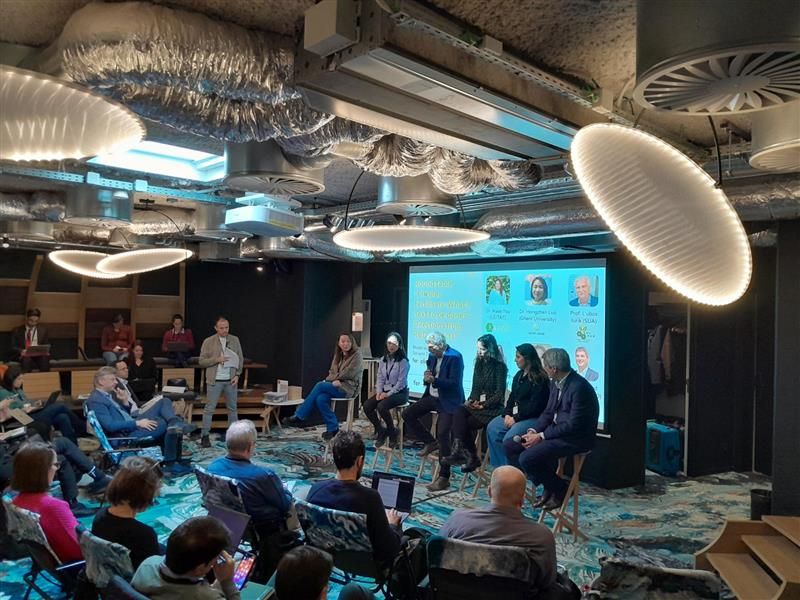NENUPHAR, a Horizon Europe project (2023-2027), is working on real, meaningful solutions to nutrient pollution, a growing problem that seriously threatens aquatic ecosystems, soil, drinking water and farming sustainability across Europe. The main sources of such pollution are manure, sewage sludge and dairy wastewaters. Through a holistic approach involving all relevant stakeholders, NENUPHAR is developing both advanced technological solutions and vital governance models to mitigate nutrient pollution, reduce fertilizer costs, and improve nutrient management and recycling at scale.
NENUPHAR unites 21 partners across 10 EU Member States and aims at creating long-term local (Community of Members) and regional (Community of Interest) stakeholder platforms for sharing expertise, applying collective lessons and methodologies, and producing lasting results, for people and nature. Visit our website to learn more about the project!
A big week in Brussels!
The partners of NENUPHAR came together for their 1st General Assembly in Brussels, Belgium on September 17 and 18, 2024. No fewer than 35 members joined on-site and online to discuss the results acquired so far for each work package and the common strategy forward, by identifying challenges and opportunities. By using smaller break-outs and focus groups, we especially focused on the pillars of technologies and governance.
Challenges and outcomes of this first year of work range from data gaps, stakeholder involvement (especially farmers), technological issues, lack of consistency in methodologies, inadequate harmonisation of governance structures at the local level or even the complete absence of economic and policy instruments at both EU and local levels.
These same themes were also the subject of extensive discussions at the 5th ESNI Conference held on 18-19 September in Brussels. EU-funded projects and stakeholders came together at ESNI to discuss the main issues they are facing right now in implementing nutrient recovery solutions and marketing them on a broader scale.
What needs doing
We’ve got to know each other and are ready to make strides forward together to reach our main common objective: addressing nutrient pollution in a meaningful way across Europe. But to get there, we’ve got some work to do. The main takeaways of this year are:
- Develop, improve and properly implement legislation, regulatory and economic frameworks and instruments for nutrient recovery. Without proper legislation and economic incentives, mineral fertilisers will continue to be promoted as the less expensive and easiest to use – not taking into account the negative externalities (health costs, diffuse pollution remediation costs, water shortage and the impact on the cost of water to citizens, biodiversity impacts, etc.). In addition, circular economy business models in this field should be developed to mainstream a nutrient recovery market.
- Properly implement and enforce existing environmental regulations (water, soil and air especially)
- Improve monitoring with consistent methodologies for filling data gaps in terms of pollution, efficiency of bio-based fertilisers, market penetration
- Improve the deployment of solutions that can offer synergies with other sectors, such as biochar that can be used to remove PFAS as well
- Stakeholder engagement: provide platforms for best practices and experiences exchanges to foster stakeholder engagement and cooperation but also establish guidelines and reference documents to strengthen common comprehension between stakeholders such as practitioners and decision-makers
- Mainstream and raise awareness of the general public on those new alternatives and their impact on human and environmental healths
The ESNI Conference was a brilliant occasion for NENUPHAR to present its activities (including scientific poster sessions and a workshop), engage in other workshops and get to know other projects and stakeholders to exchange views and start creating the diverse and coalition we so urgently need.
The workshop organised by CIRCE, lead partner of NENUPHAR and supported by various partners, aimed at assessing the regulatory and economic instruments for nutrient recovery from manure, sewage sludge and dairy wastewater including in countries or MS that are not covered by the project.
We welcomed more than 50 participants from all around the world – from all over Europe to Asia and from the MENA region to Latin America.
In detail, the idea was to gather feedback on the regulatory and economic landscape for nutrient recovery: existing instruments, barriers, framework for marketing and application of recovered nutrients, experiences and practices, circular economy business models, etc.
The information shared in the workshop highlighted very clearly that too little is currently being undertaken in the field of nutrient recovery and creating an enabling environment for its implementation. The lack of legislation and economic instruments leads to data, research and implementation gaps of nutrient recovery technologies, thus preventing their full deployment in the market and allowing the widespread continued use of harmful mineral fertilisers.
What’s in the pipeline?
In the coming months, partners involved in each demo-site (Ebro river basin, Lielupe river basin and Danube river basin) will organise workshops at the local level to maximise engagement and buy-in on the advanced solutions being developed.
Stay tuned on our social media channels and website to discover more on NENUPHAR events and news.
Discover more on NENUPHAR and follow our activities on LinkedIn or X. Stay tuned for more updates on how our partners’ projects are going by visiting our YouTube channel: NenuPhar_EU.
And last but not least, help us to create a more sustainable and healthy agriculture and environment by sharing experiences and good practices in joining the Community of Interest!
By subscribing to the CoI, you will have the chance to receive updates, events and invitations and be part of a bigger coalition of practitioners and decision-makers in the field of nutrient management worldwide.



